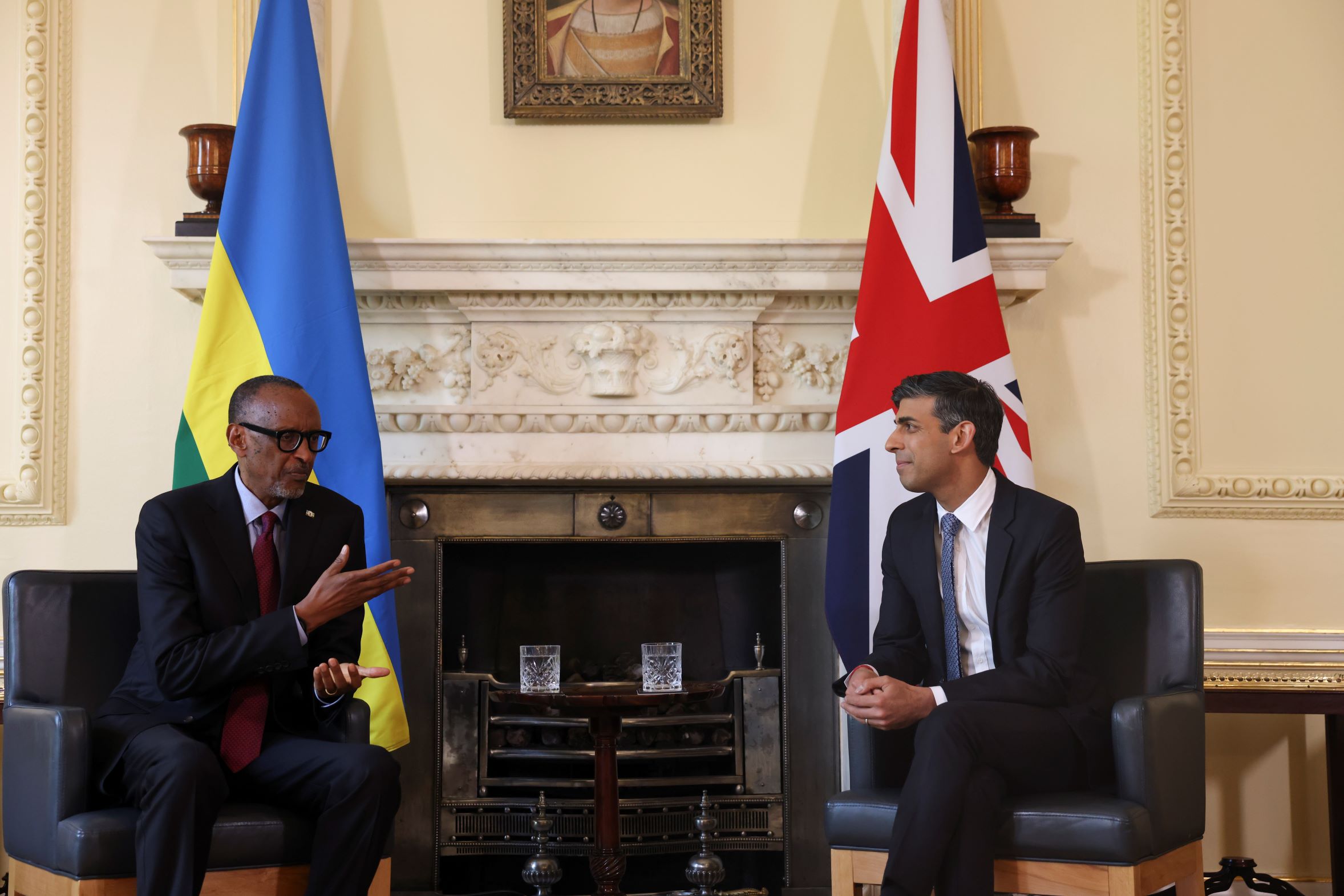After an extended period of disengagement and mistrust, the UK seems to be re-engaging with its EU counterparts on security cooperation. But where might this lead? Benjamin Martill charts the fate of the post-Brexit security agreement from the aftermath of the referendum to the fallout from the invasion of Ukraine.
This article is part of our series on policymaking in the UK after Brexit. For more analysis, visit the focus page.
It was often held that negotiating a security partnership with the EU would be the easy part of the Brexit negotiations. Yet observers in 2016-17 could not imagine the twists and turns the Brexit process would take, or the way factional politics would intervene to hold hostage the idea of an agreement.
Nor could many have foreseen Russian President Vladimir Putin’s shocking invasion of Ukraine in February 2022 and the gradual re-engagement between the UK and the EU that would come about in certain areas of foreign and security policy in the aftermath.
Continuity under Theresa May?
The May government’s approach to Brexit represents something of a contradiction. On the one hand, Cameron’s successor committed early to “red lines” that would box the UK in during the negotiations and preclude all but a Free Trade Agreement further down the line. And this against a backdrop of hard bargaining and Eurosceptic rhetoric no doubt influenced by the prime minister’s weak position vis-à-vis the combined EU27.
On the other hand, May sought far greater continuity in pre-existing areas of cooperation than her successor would, such that the UK was often accused by EU negotiators of seeking to “cherry pick” access to the EU from the outside. As Luxembourg Prime Minister Xavier Bettel remarked: “Before they were in with a lot of opt-outs, now they are out and want a lot of opt-ins”.
Security was one area in particular where May was keen to establish continuity, even though the UK had NATO and bilateral relations with many EU member states to fall back on. May’s keenness for a security agreement – evident in her speeches in Florence in September 2017 and Munich in February 2018 – stemmed from a personal preoccupation with security, a desire to make up for lost ties, and a belief that the UK’s value here could help establish a positive tone in the negotiations.
Framework proposals for a security agreement were unveiled in May 2018. In them, London proposed structured cooperation with regularised meetings at different levels, UK participation in the projects of new EU post-Brexit initiatives (including PESCO and the European Defence Fund), participation in select missions of the Common Security and Defence Policy (CSDP), and institutional arrangements for the UK to feed into decision-making where it was to be involved.
The Political Declaration appended to May’s deal indicated the keenness of both sides to negotiate an agreement on security and defence.
The proposals came weeks ahead of the Chequers Summit at which the prime minister unveiled proposals for the future relationship that would precipitate a split within the factious Conservative Party and ultimately doom her deal. The idea of a security partnership was unpopular among pro-Brexit Conservatives – who feared subsumption under a “European Army” – while aspects of the proposals were coolly received in Brussels. Nonetheless, the Political Declaration appended to May’s deal indicated the keenness of both sides to negotiate an agreement on security and defence.
Boris Johnson and “No Deal”
The rejection of May’s deal in early 2019 – on three separate occasions – paved the way for May’s resignation that summer and her eventual replacement by Boris Johnson, who despite any personal wavering over Brexit issues had, by this point, established himself as the doyen of pro-Brexit Conservatives. Johnson’s infamous renegotiation of May’s deal towards the end of 2019, which established the problematic Protocol arrangements for Northern Ireland, also modified the language of the Political Declaration, but did not excise proposals for a security agreement.
Yet in February 2020, as the negotiations on the Trade and Cooperation Agreement began, the Johnson government informed EU Chief Negotiator Michel Barnier’s team that the UK would not be looking to negotiate a security agreement. Given the strategic weight of the UK as an international actor, the move disappointed many in the Commission, whilst also coming as something of a surprise, since the move deviated from the commitments spelled out in Johnson’s own renegotiated Political Declaration.
The reason for the UK’s decision lies at the confluence of domestic politics and the nature of the European security architecture. Johnson had promised greater autonomy from the EU in his Brexit agreement, and security and defence was one area where a “no deal” outcome could be delivered in the least costly manner, given the UK’s capabilities and the existence of alternative forums for security cooperation. A more distant security relationship could compensate, therefore, for the need for an agreement that maintained the trading relationship.
The upshot of Johnson’s decision was that when the UK emerged from the transition period on 1 January 2021, there existed no formalised relationship between the UK and the EU in foreign and security policy, leaving the UK seeking alternative ways of finding out what the thinking was among the EU27. Moreover, while individuals on both sides had their existing contacts, there was no political desire on either side for these unofficial contacts, restricting even the informal networks that could have contributed to information-sharing.
The Invasion of Ukraine
Russia’s invasion of Ukraine on 24 February 2022 represented a seismic shock to the European security order, bringing about unparalleled solidarity within and between European states, prompting robust support for Ukraine across the board, and occasioning significant changes in the security posture of key actors. These included the German Zeitenwende – a commitment to spend more on defence – the NATO applications of Sweden and Finland, and Denmark’s vote to scrap its opt-out from the defence aspects of European integration.
Britain’s response won plaudits across the continent for its strength and efficiency, with UK military contributions to Kyiv the highest among the European countries. Britain has trained tens of thousands of Ukrainian soldiers, enhanced its forward presence in bordering NATO countries, signed new security agreements with – among others – Finland and Sweden, and stepped up its cooperation with Nordic and Baltic partners.
The solidarity engendered by the war, coupled with the realisation on both sides that both the UK and the EU are major players, has re-kindled UK-EU security cooperation.
Yet while NATO remains the prime forum through which strategic discussion takes place, the EU has emerged as a significant player in the conflict, coordinating aid and weapons donations, fast-tracking Ukraine’s application for EU membership, actioning successive round of sanctions on those close to Putin’s regime, and providing a forum – through the Strategic Compass exercise – for agreeing a shared threat assessment among member states.
The solidarity engendered by the war, coupled with the realisation on both sides that both the UK and the EU are major players, has re-kindled UK-EU security cooperation. And while the process has been gradual, both sides now cooperate in a host of areas, with coordination on sanctions, UK accession to the “Military Mobility” PESCO project, a British presence in the EU’s military clearing house cell, high-level calls and meetings, and coordination between the UK and EU military training missions.
The departure of Johnson from office in September 2022 and the negotiation of the Windsor Framework in early 2023 by Rishi Sunak both helped to build trust and prompt discussion of further cooperation. But the relationship remains unstructured. While Labour recently proposed a formal security agreement should they come to power, the incumbent Conservative government resists formalisation, fearing anything that looks like an “entangling alliance” will upset the party right.
Yet much is possible informally for now, given the low-hanging fruit on offer as Britain emerges from the “no deal” fallback. And with a political consensus on improving security cooperation, the prospects for re-building the relationship would appear propitious.
This post draws on the findings of the recent research article “Withdrawal symptoms: party factions, political change and British foreign policy post-Brexit” (Journal of European Public Policy, 2023)
All articles posted on this blog give the views of the author(s), and not the position of LSE British Politics and Policy, nor of the London School of Economics and Political Science.
Photo credit: Number 10, Creative Commons — Attribution-NonCommercial-NoDerivs 2.0 Generic — CC BY-NC-ND 2.0







